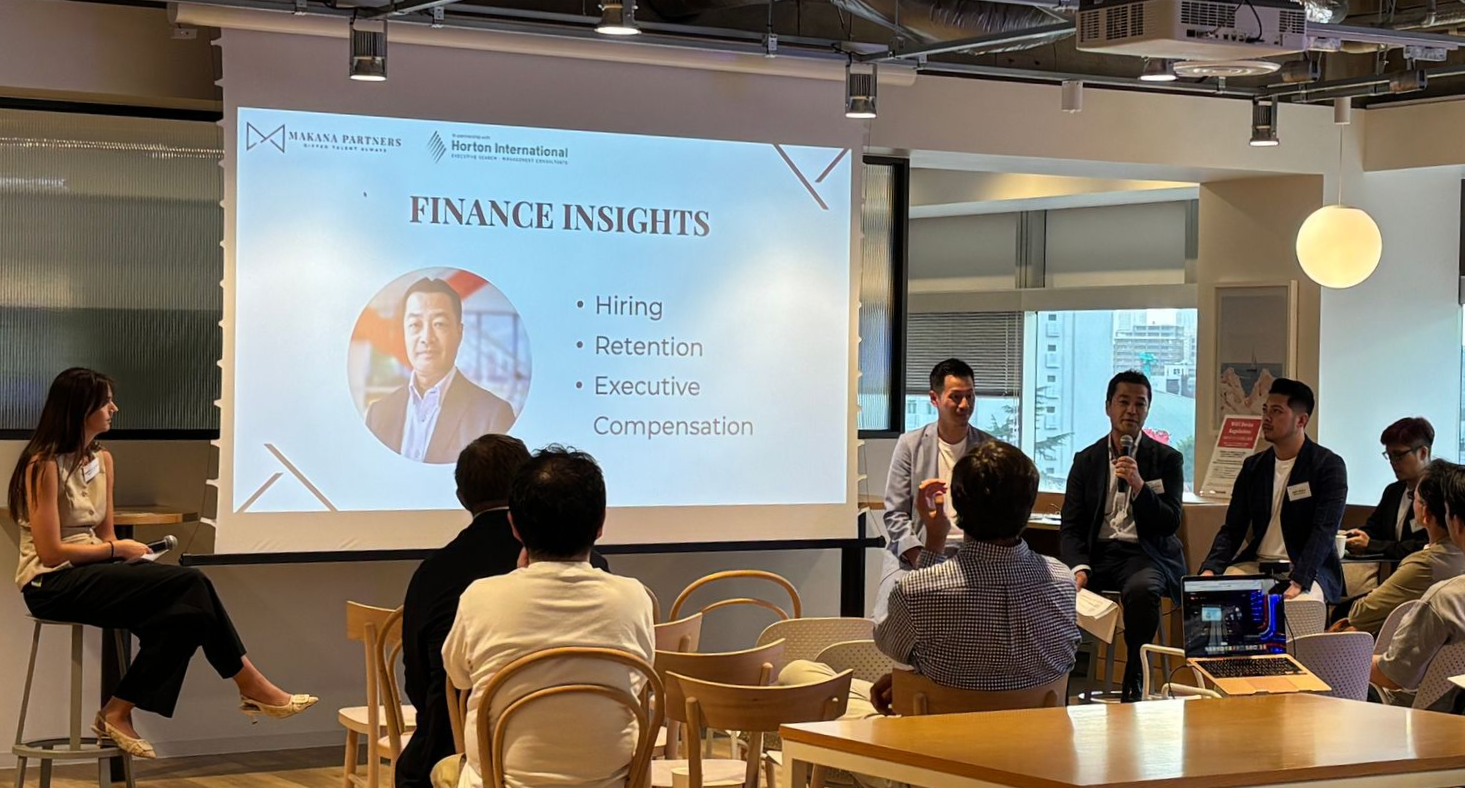The Benefits of Short Interviews in Japan's Time- Pressed Work Culture
Short interviews are gaining prominence in Japan's corporate landscape as a pragmatic solution to the nation's famously demanding work culture. The emergence of "casual meetings" (カジュ アル面談, kajuaru mendan) represents a significant shift in Japanese hiring practices, offering efficiency benefits for both employers and job seekers. This informal pre-application interview format allows companies to engage with more candidates while giving job seekers the opportunity to explore potential employers without excessive time commitments. As Japan continues to navigate labor shortages and work-style reforms, these abbreviated interview formats align perfectly with the need to respect everyone's limited time while still facilitating meaningful professional connections.
Japan's Demanding Work Culture and Time Constraints
Japan's reputation for intense work dedication is well-documented and creates significant time pressures for professionals throughout the country. According to 2022 data from Japan's health ministry, 10.1% of men and 4.2% of women worked over sixty hours per week, highlighting the extreme time constraints many Japanese workers face . This culture of extended working hours creates an environment where both hiring managers and job candidates have precious little time to spare for lengthy interview processes.
The concept of company loyalty in Japan often manifests through extended working hours that are not just expected but sometimes contracted . Tim Craig, a researcher of Japanese culture, notes that social pressure plays a significant role in this dynamic: "If they go home early, then their colleagues will (a) look askance at them, and (b) have to work more to cover for them. Either way, it's not a good feeling" . Such pressure makes taking time off for job interviews particularly challenging, creating a situation where shorter interviews become not just preferred but necessary.
Despite Japan's 2018 Workstyle Reform Act that outlawed excessive overtime, many employees still work beyond regulated hours, either by company pressure or personal choice . With only 7% of Japanese companies providing employees with the legally mandated weekly day off, the opportunity for candidates to participate in lengthy interview processes is severely limited . These time constraints affect both sides of the hiring equation, making shorter interviews an increasingly valuable adaptation.
The Evolution of Interview Practices in Japan
Traditional job interviews in Japan often follow formal, structured formats that can be time- consuming and stress-inducing for all parties involved. However, recent years have seen a notable shift toward more time-efficient approaches, with the "casual meeting" emerging as a popular alternative, particularly among Japanese startups and increasingly with larger corporations . These casual meetings represent an informal interview that takes place before a formal application is submitted. This approach developed as a response to changes in Japan's hiring landscape, where simply posting job openings was no longer sufficient to attract quality candidates . Today's job seekers have become more selective and cautious about formally applying to positions without first gaining insight into the company culture and work environment.
Unlike traditional casual interviews in other countries, which typically occur after application as a screening mechanism, Japan's casual meetings happen before the application process . This important distinction highlights their primary purpose: to provide an opportunity for mutual exploration rather than formal evaluation. The emphasis on "casual" makes these meetings less intimidating and time-consuming for candidates who are already balancing demanding work schedules.
Benefits of Short Interviews for Employers
For Japanese companies operating in a time-constrained business environment, shorter interviews offer significant advantages in the hiring process. The casual meeting format enables employers to connect with a wider pool of potential candidates without committing extensive resources to formal interviews with each one . This efficiency is particularly valuable given the management time constraints in Japan's work-intensive corporate culture.
Short interviews allow hiring managers to quickly assess a candidate's basic qualifications, communication style, and cultural fit without disrupting their already packed schedules. In a work culture where long hours are the norm, every minute saved in the hiring process translates to valuable time that can be redirected to pressing business matters . This is especially important for senior staff members who might be involved in interview panels.
The casual meeting approach is widely considered a "win-win" scenario that benefits employers by widening their search pool without requiring excessive time investment . Companies can become acquainted with more potential employees efficiently, allowing them to make better- informed decisions about which candidates to invite for more comprehensive formal interviews later in the process. For job seekers navigating Japan's demanding work culture, shorter interviews provide numerous practical advantages. The casual meeting format allows candidates to explore potential employers without taking extended time away from their current positions, which could otherwise create tension with existing employers given the cultural expectations around work presence .
Benefits of Short Interviews for Job Seekers
For job seekers navigating Japan's demanding work culture, shorter interviews provide numerous practical advantages. The casual meeting format allows candidates to explore potential employers without taking extended time away from their current positions, which could otherwise create tension with existing employers given the cultural expectations around work presence .
Short interviews require less preparation time and create lower stress levels than traditional lengthy interviews. In a society where 10.1% of men work more than 60 hours weekly, the ability to participate in job interviews without excessive time commitments is invaluable . Candidates can more easily fit these abbreviated meetings into lunch breaks or before/after regular working hours, minimizing disruption to their current work responsibilities.
Additionally, the informal nature of these casual meetings creates a more comfortable environment for candidates to assess whether a company aligns with their career goals and work style preferences. As noted in the article from TokyoDev, this allows job seekers to "learn more about a company before they spend time and effort on a full, formal application" . This efficiency enables candidates to explore more potential opportunities without the exhaustion that would come from multiple full-length formal interviews.
Cultural Considerations in Japanese Interview Practices
Japanese interview practices reflect broader cultural norms that differ significantly from Western approaches. In Japan, there is a cultural tendency to avoid excessive self-promotion, which shapes how interviews are conducted . Rather than focusing on individual achievements, Japanese interview culture often emphasizes team contributions and collective success.
The structure and formality of interviews can vary significantly based on company size and age. As one Reddit commenter with experience interviewing in Tokyo observed, "In smaller or more contemporary Japanese companies it will feel casual and perhaps similar to a North American one. In older/larger companies, it might feel like a panel interview but more tense" . These variations affect the interview length and format across different organizational contexts.
Cultural formalities remain important even in shorter interview formats. Elements such as proper bowing, using respectful phrases like "失礼します" (excuse me), and employing keigo (formal language) continue to play crucial roles in Japanese professional interactions . Short interviews must still accommodate these cultural expectations while streamlining the substantive discussion portions.
Implementation Strategies for Effective Short Interviews
To maximize the effectiveness of shorter interviews in Japan's busy work environment, careful planning and structure are essential. Companies can implement several strategies to ensure these abbreviated formats yield valuable insights despite their reduced duration. Pre-interview screening through resume review and brief initial assessments can help focus the in-person meeting on the most relevant qualifications and concerns. This preparation ensures that even brief conversations can address substantive topics rather than basic information collection.
Technology can further enhance the efficiency of these shorter interactions. Video interviews for initial screenings can eliminate commute time for both parties, making the process more accessible to busy professionals. This approach aligns well with Japan's ongoing efforts to modernize work practices, including the push for four-day workweeks that began in 2021 . Structured interview formats with clearly defined objectives help ensure that essential topics are covered despite time limitations. By preparing focused questions that target key competencies and cultural fit indicators, interviewers can gather meaningful information even in shortened timeframes.
Conclusion
The shift toward shorter interviews in Japan represents a practical adaptation to the realities of the country's intensive work culture. As Japan continues to face labor shortages and demographic challenges, with foreign workers now comprising about 3% of the workforce , efficient hiring practices become increasingly important to attract and retain talent. The casual meeting approach exemplifies how Japanese business practices are evolving to address changing workforce dynamics while respecting the time constraints imposed by traditional work expectations. By acknowledging the practical benefits of shorter interviews- efficiency for employers, accessibility for candidates, and reduced disruption to ongoing work- Japan's hiring landscape is developing in ways that better serve all stakeholders.
As Japan continues to implement work reforms aimed at improving work-life balance, the trend toward more time-efficient interview practices is likely to continue and expand. These shorter interview formats not only accommodate the busy schedules of Japanese professionals but may also contribute to the broader cultural shift toward more sustainable work practices that the country is gradually embracing.
Citations:
https://sites.uab.edu/humanrights/2024/11/22/karoshi-the-problems-with-japans-work-culture/
https://www.tokyodev.com/articles/what-is-a-casual-meeting-in-japan
https://www.reddit.com/r/japan/comments/16h8slk/if_ japan_has_a_culture_of_never_talking_highly_of/










